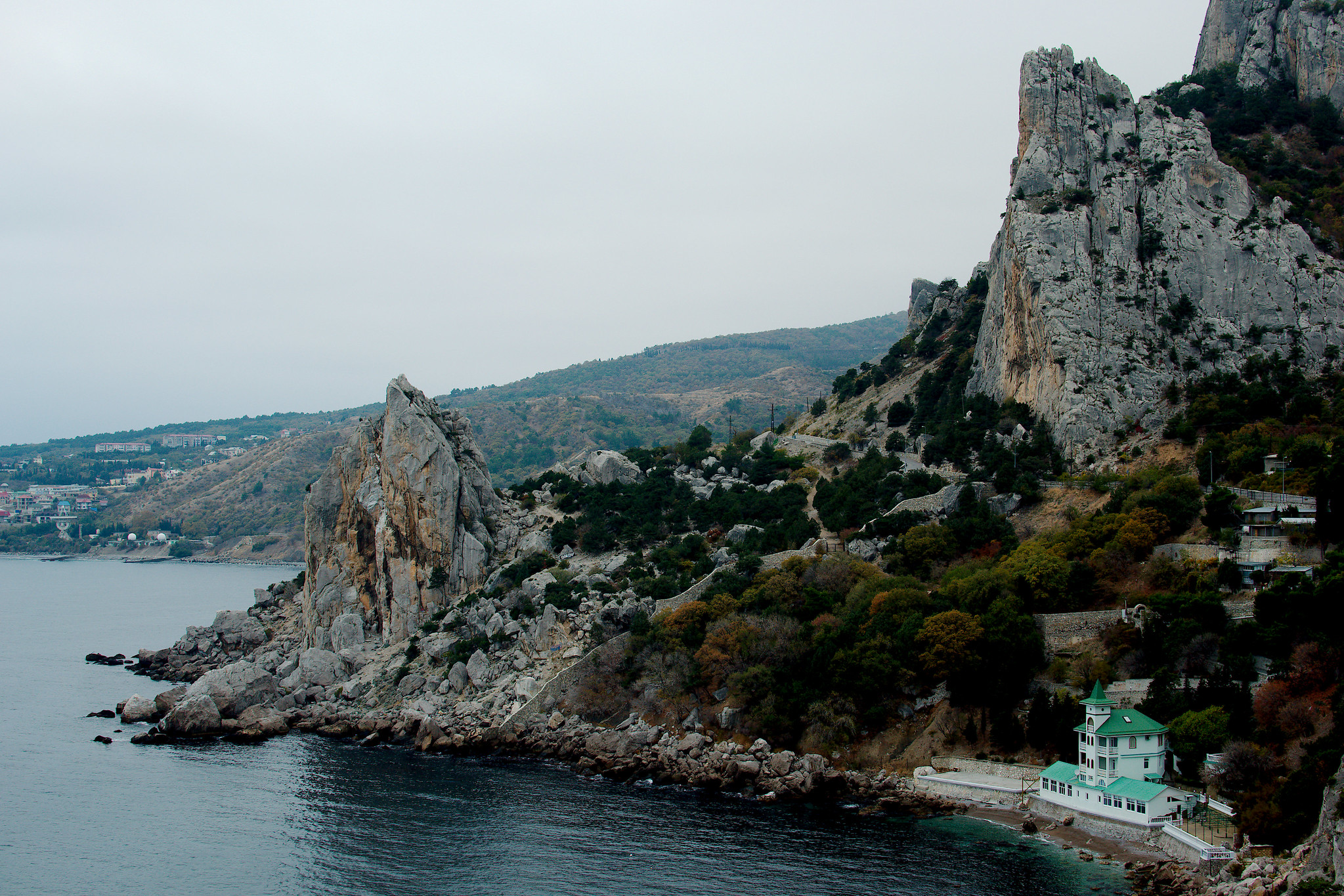Déjà vu—Russia’s Illegal Restrictions on Innocent Passage in the Black Sea
The Associated Press reported that the Russian military claimed one of its warships had fired warning shots in front of the HMS Defender after the British destroyer ignored a warning that it would be fired upon if it entered the Russian-claimed territorial sea off the Crimean Peninsula.

Published by The Lawfare Institute
in Cooperation With

On June 23, 2021, the Associated Press reported that the Russian military claimed one of its warships had fired warning shots in front of the HMS Defender after the British destroyer ignored a warning that it would be fired upon if it entered the Russian-claimed territorial sea off the Crimean Peninsula. The Russian military also claimed that a Russian Su-24 bomber dropped four fragmentation bombs ahead of the Defender to persuade the British warship to alter its course and that the British destroyer left Russian waters shortly thereafter.
The British Ministry of Defense denied that the incident had occurred or that the ship was in Russian waters, stating that the HMS Defender had not been fired upon and was engaged in innocent passage through the Ukrainian territorial sea in accordance with international law, as reflected in the United Nations Convention on the Law of the Sea (UNCLOS). UK Foreign Secretary Dominic Raab told reporters, “No shots were fired at HMS Defender … The Royal Navy ship was conducting innocent passage through Ukrainian territorial waters … We were doing so in accordance with international law and the Russian characterisation is predictably inaccurate.”
All ships, including warships, enjoy a right of innocent passage through the territorial sea under UNCLOS, Article 17. Passage is innocent so long as it is not prejudicial to the peace, good order or security of the coastal state. An exhaustive list of activities considered to be prejudicial to the peace, good order or security of the coastal state is contained in UNCLOS, Article 19. There is no evidence that the British destroyer was engaged in any prohibited activity at the time of the alleged incident. Rather, British authorities indicated that the HMS Defender was conducting a routine transit from Odessa to Georgia using an internationally recognized traffic separation corridor in the Black Sea.
The dustup is reminiscent of the 1988 Black Sea Bumping Incident when two Soviet warships intentionally shouldered the USS Caron (DD-70) and USS Yorktown (CG-48) while the U.S. warships were conducting innocent passage through the Russian territorial sea off Crimea. Prior to entering the Soviet territorial sea, the U.S. destroyer and guided-missile cruiser were warned by a Soviet border-guard ship that it had orders to prevent a violation of Soviet territorial waters and was authorized to strike the U.S. warships. The Caron and Yorktown disregarded the warning and entered the Soviet territorial sea in innocent passage. A few minutes later, the U.S. warships were deliberately shouldered by two Soviet vessels—a Krivak-class frigate and a Mirka-class anti-submarine frigate.
Following the bumping incident, U.S. and Soviet defense officials engaged in a series of discussions on a range of issues, including certain legal aspects of traditional uses of the oceans. These talks culminated in a joint statement on the Uniform Interpretation of the Rules of International Law Governing Innocent Passage. Guided by the provisions of UNCLOS, the United States and the Soviet Union agreed, inter alia, that the relevant rules of international law governing innocent passage of ships in the territorial sea are stated in Part II, Section 3, of UNCLOS. Furthermore, the parties agreed that all ships, including warships, regardless of cargo, armament or means of propulsion, enjoy the right of innocent passage for which neither prior notification nor authorization is required. The parties also recognized that UNCLOS Article 19 contains an exhaustive list of activities that would render passage not innocent and acknowledged that ships passing through the territorial sea were engaged in innocent passage if they did not conduct any of those activities. If a warship engages in conduct that renders its passage not innocent and does not take corrective action upon request, the coastal state may require it to leave the territorial sea, and in such case the warship shall do so immediately. The Russian Federation has acknowledged the bilateral interpretation of the Uniform Interpretation of the Rules of International Law Governing Innocent Passage that had been agreed upon by the U.S. and Soviet Union. Russia’s alleged recent actions against the HMS Defender are clearly inconsistent with that agreed interpretation.
UNCLOS Article 25 allows a coastal state to take the necessary steps in its territorial sea to prevent passage that is not innocent. However, even if the British warship engaged in an activity that rendered its passage not innocent, which does not appear to be the case based on the news reports, international law only allows Russia to require the warship to leave its territorial sea under UNCLOS Article 30. A coastal state may not use force to compel a sovereign immune vessel to leave the territorial sea unless the state is acting in self-defense in response to a hostile act or demonstrated hostile intent. UNCLOS Article 32 is clear on this issue—nothing in the convention affects the immunities of warships and other government ships operated for non-commercial purposes.
Warships and other vessels owned or operated by a state and used only on government noncommercial service are entitled to sovereign immunity. Such vessels are immune from arrest or search, even in internal waters and the territorial sea. Thus, the alleged use of warning shots and the dropping of fragmentation bombs by Russia was a clear violation of international law and could have unintended consequences. Russia’s self-reported use of warning shots and dropping of bombs could have been misunderstood by the Defender as an unlawful use of force giving rise to the right of self-defense under Article 51 of the UN Charter. If it was not satisfied with the Defender’s non-responsiveness to the order to leave, Russia’s only remedy is to file a diplomatic protest.
If Russia did fire the warning shots and drop bombs (which is not clear), the UK should immediately protest Russia’s unprofessional and unsafe behavior. The démarche can be worded in a way that does not compromise the UK’s position that it does not recognize Russian sovereignty over the Crimea. In addition, NATO should expeditiously respond to Russia’s malign behavior with a series of freedom of navigation operations designed to challenge Russia’s excessive maritime claims in what is, in effect, the Ukrainian territorial sea.





